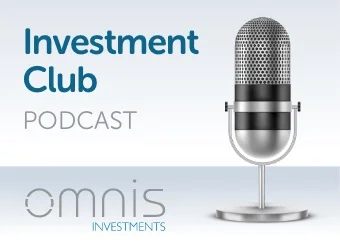Review of the key market events during the last twelve months
Friday 11 June, 2021
In this article Omnis Investments outline the key events that happened in the markets.
Tracy Dove, Financial Adviser in Basildon and Cheshunt, Hertfordshire and London said: ‘If you require financial advice please call our financial advisers today on 01707 872000. We assess your financial circumstances such as your income and expenditure and the assets you own and your attitude to risk, before recommending investment products to suit your personal situation. The information below on key events that impact markets shows the value of diversifying your investment portfolio. It is also important to remember that if you want to invest in equity markets, we recommend that you invest over the long-term.’
Here is the Omnis Investments review of how some of the key events from the past twelve months have impacted the markets.
- Just as western countries seemed to be overcoming the pandemic, President Trump reignited tensions with China, blaming the country for the spread of the virus. Meanwhile, the prospect of a “hard” Brexit returned as negotiations between the UK and the EU ended without meaningful progress towards a free trade deal.
- The third quarter of 2020 began on a positive note as the EU agreed a package of support measures worth €750 billion to offset the economic impact of the pandemic, while earnings season got off to a strong start thanks to US banks.
- The full effect of the pandemic emerged in August 2020 as the UK, EU and US released figures showing the extent to which their economies contracted in the second quarter of the year. However, there were encouraging signs of growth in June and July as lockdown restrictions eased.
- Any optimism proved short-lived as rising infection rates called into question the endurance of the nascent economic recovery. Stock markets headed lower, particularly shares in the technology sector which had been driving the markets since the correction earlier in the year. The pound weakened against the US dollar as the UK government threatened to alter the Brexit withdrawal agreement by introducing the Internal Market Bill.
- Campaigning for the US presidential election picked up in October 2020. However, the market’s main concern was when US politicians would agree a further economic relief package. Meanwhile, the pound fluctuated against the US dollar as the UK threatened to walk away from Brexit talks, but both parties acknowledged the need to make concessions, and they returned to the negotiating table.
- The UK went back into lockdown in November 2020, but there was better news for markets later in the month. Several companies reported successful trials of vaccines for the coronavirus, while Joe Biden emerged as the winner of the US presidential election.
- 2020 ended positively for the markets as the UK and EU sealed a free trade deal, US politicians finally agreed on a further round of economic support measures and the roll out of the coronavirus vaccine began.
- 2021 got off to a good start after the Democrats won a majority in the Senate (the upper house of US politics) giving President Biden a strong mandate to increase government spending. However, the rising number of new coronavirus cases around the world weighed on the markets.
- The fall in infection rates and the rapid vaccination rollout continued to drive markets higher in February 2021. Stock markets closed the month positively. The rotation in favour of value and small caps continued because of the expected post-pandemic normalisation and rising bond yields.
- China led recovery from the pandemic because it suppressed the virus quickly. The US and UK rebounded owing to a combination of fiscal stimulus measures and efficient vaccination programmes. In contrast, the EU had not yet put its relief fund to work, and many countries struggled to contain a third wave. Investors remained concerned about inflationary pressures as economies reopened.
- In April 2021, we began to see positive economic indicators due to the reopening of economies. Equity markets had a strong month fuelled by hopes of this rapid rebound in global growth. Vaccination rates in the US and UK continued to proceed well. In Europe, after a difficult start to the vaccine campaign. the pace of vaccination accelerated significantly throughout the month.
- In May 2021, data showed a sharp increase in inflation numbers, sparking concerns among investors. Central banks reiterated that inflation is likely to be ‘transitory’ providing some relief to markets. Despite this, most equity markets ended the month on a positive note.
The investments held in your portfolio are spread across different regions and depending on your attitude to risk, a range of assets. This diversification reduces the impact on performance of any individual event like the coronavirus crisis as assets react in different ways. We take a long-term approach to investing, and we do not let short-term events force us into making decisions about how we manage your portfolio.
Robert Jeffrey
Chief Investment Officer, Omnis Investments
In summary
- June-20: Tensions between the US and China resurfaced, and Brexit negotiations restarted but failed to deliver any concrete outcomes.
- July-20: The EU agreed a package of support measures worth €750 billion to offset the economic impact of the pandemic.
- August-20: The UK, EU and US released figures showing the extent to which their economies contracted in the second quarter of the year.
- September-20: Technology shares, which had been driving the markets since the correction earlier in the year, sold off at the start of September.
- October-20: The US presidential campaign started to weigh on the markets in October and Brexit negotiations intensified after both sides acknowledged that they would have to make concessions.
- November-20: After a close-run race, challenger Joe Biden won the US presidential election. Meanwhile, several companies developing vaccines for the coronavirus reported successful trials.
- December-20: There was a positive end to 2020 for the markets as the UK and EU sealed a free trade deal, US politicians agreed on another economic relief package and the roll out of the coronavirus vaccine began.
- January-21: 2021 got off to an encouraging start after the Democrats won a majority in the US Senate, increasing the chances of a boost to government spending.
- February-21: Rapid vaccination rollout drove markets higher and despite a drop towards the end of the month, stock markets were up during the month.
- March-21: Rapid vaccination and fiscal stimulus bode well for the US and the UK. In the EU, many countries struggle to supress a third wave of the virus.
- April-21: Macroeconomic data is backing up the market’s optimism, with mounting evidence that the recovery from the coronavirus pandemic is in full flow – although it has got going in some places faster than others.
- May-21: Data showed a sharp increase in inflation numbers, sparking concerns among investors, although central banks reiterated that they expect these inflationary numbers to be ‘transitory’.
The value of an investment and the income from it could go down as well as up. The return at the end of the investment period is not guaranteed and you may get back less than you originally invested. The contents of this article are for information purposes only and do not constitute individual advice.






